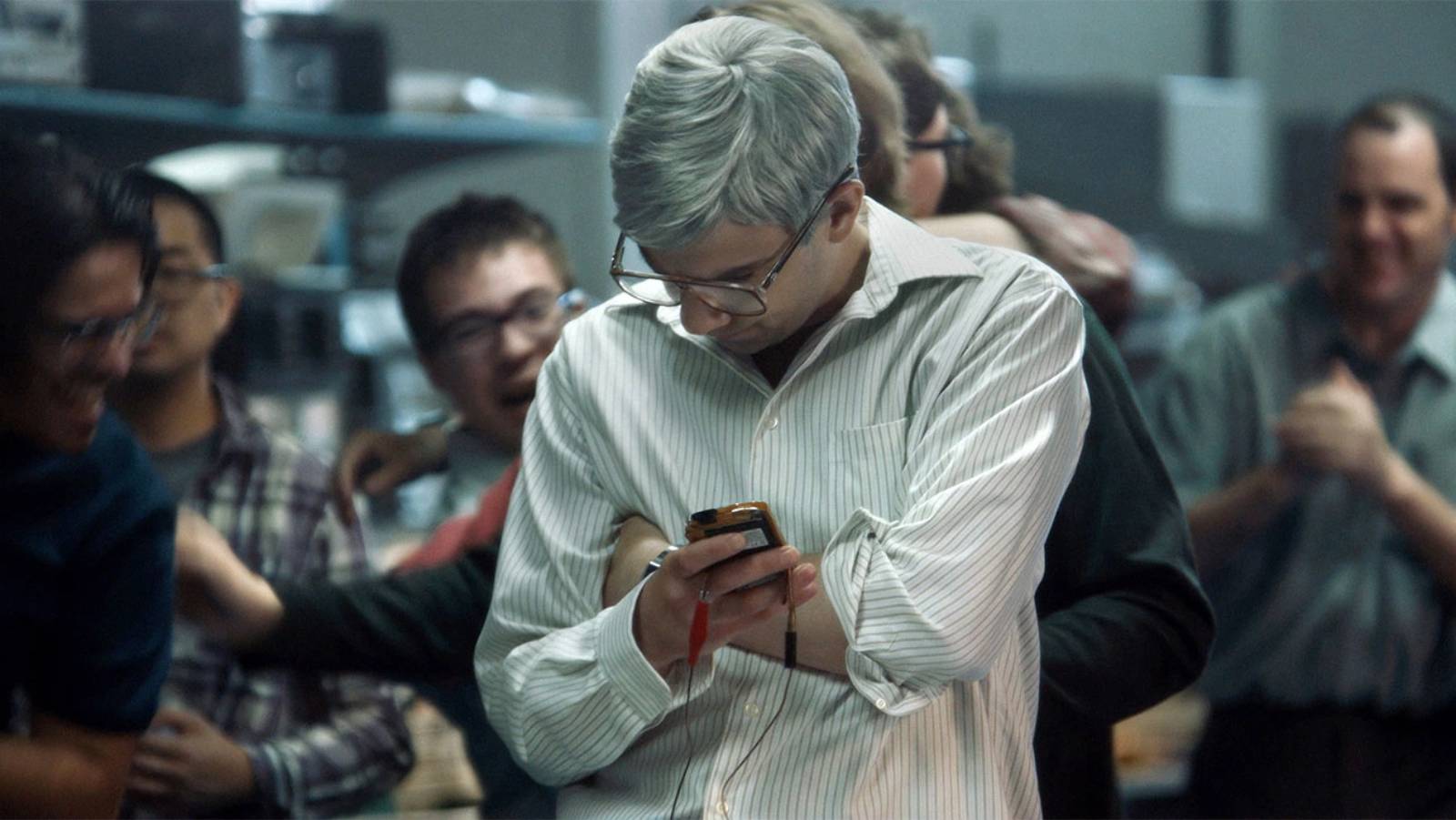In BlackBerry, the rise of a blue-chip tech company sets the stage for the dissolution of a longstanding friendship. Sound familiar? Just wait ‘til you hear the score. Directed by Matt Johnson, it tells the true story of Mike Lazaridis and Douglas Fregin, software engineers who founded the company RIM in the mid-80s and later invented a cellphone that could handle email. The film begins on the day when they meet Jim Basillie (Glenn Howerton), a Rottweiler who, alongside Lazaridis’ genius, turned RIM’s invention (only later christened BlackBerry) into the world’s most ubiquitous mobile device––at least for a time.
Johnson, who also stars as the amiable Fregin opposite Jay Baruchel’s introverted Lazaridis, is the Canadian director behind Operation Avalanche––a film that seamlessly blended documentary aesthetics with newsreel footage to tell the story of how the CIA (and not quite Stanley Kubrick) maybe faked the moon landing. Cosmetically, BlackBerry’s mise-en-scène isn’t a million miles off it: the camerawork is nicely fidgety and handheld, and events depicted are primarily based on reality––as is the TV footage, though this time Johnson stays closer to the facts.
While borrowing liberally from The Social Network, and in more interesting ways than other recent imitators––for one, Johnson writes Lazaridis a nice little Rosebud––BlackBerry at first takes a playful approach to the material. It’s shot in a kind of grainy sepia by cinematographer Jared Raab, as if in riposte to Fincher’s icy cool, and Johnson stacks his sets with some of the era’s more off-beat ephemera: a They Live shirt here, a DOOM shirt there, a Command and Conquer LAN party––it’s all quite pleasing. Baruchel and Johnson, bouncing off each other in a classic straight man/loudmouth two-hander, are a fine double act. As their would-be foil, Howerton is even better, and I loved the contrast between the actor’s soft mouth and the foul-mouthed stuff spewing out of it. Michael Ironside and Rich Sommer are given welcome cameos.
We’re also, significantly, not in Harvard or Silicon Valley but Waterloo, Ontario––a clash of sensibilities Johnson is well-versed in exploring. There’s a refreshing, self-deprecating vibe to BlackBerry: nobody claims they want to save the world, let alone take it over. The opening credits roll to images––from Saved by The Bell, Inspector Gadget, Hackers, and so on––from a time when the internet was something to be in awe of, even hopeful about. Johnson’s film is, in a way, about how that mood changed.
One of the more interesting things about BlackBerry is seeing how long it can reject Fincher’s aesthetic blueprint. The cast can resemble HBO’s Silicon Valley at times, but there’s a warm, analogue feel in BlackBerry‘s early stages––the first prototype is seen being constructed from smashed-up toys––that is closer in spirit to the endearing dorks of Andrew Bujalski’s Computer Chess. This, Johnson suggests, was a more innocent time, and the mood of that first act easily reflects such: it’s earnest, punky, even loud (get ready for Slint’s immortal “Good Morning, Captain” over an NYC drone shot.) For a while it’s less a tribute act than 32-bit, indie homage.
Johnson does, alas, eventually give in to Fincher’s gravitational pull and Wellesian allusions. As Fregin is sidelined, the unlikely duo of Basillie and Lazaridis go through obligatory motions: nervy calls, all-nighters, last-gasp pitches. They move to increasingly lifeless buildings, make dodgy deals, and hire an enforcer (Ironside) to poop the party. Baruchel’s Lazaridis starts to look a bit Mr. Burns. Jay McCarrol’s score goes from fun bleepy-bloppy to imitation Reznor-Ross. When Steve Jobs inevitably appears––wiping it all away with one swipe of a touchscreen––his presence rings like a bell toll. The film’s color palette fades. So too does its sense of fun.
BlackBerry premiered at the 2023 Berlinale and will be released in June by IFC Films.

